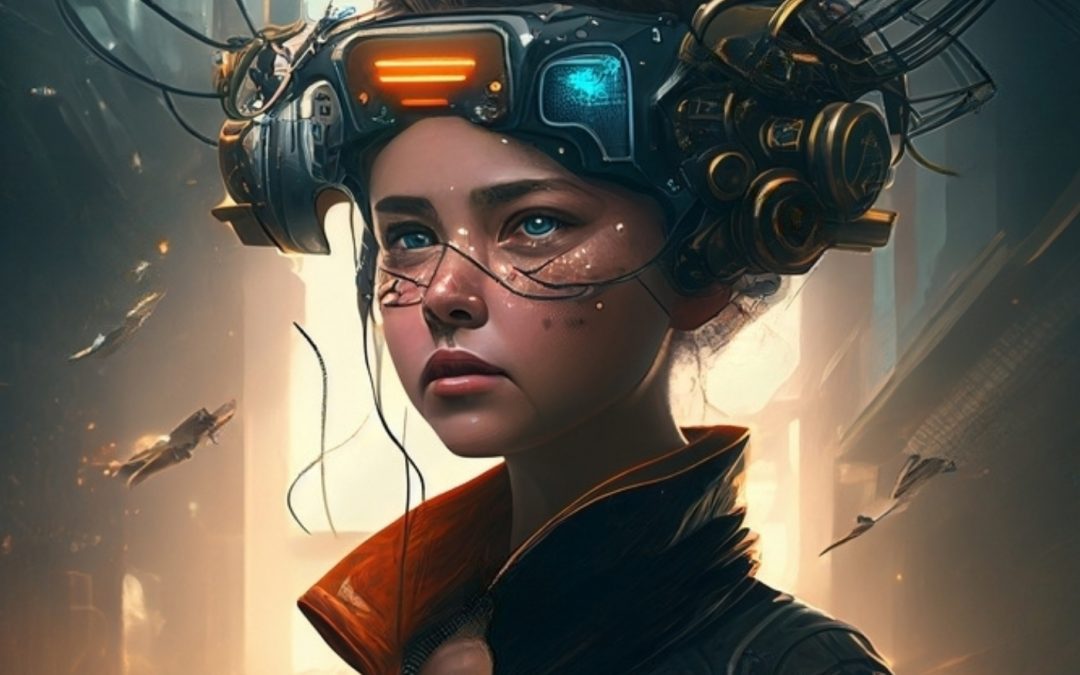The buzz surrounding the Metaverse has captivated the imaginations of people worldwide. It promises to transport us beyond the confines of our physical reality into a digital realm where we can interact, socialize, and explore. Artificial Intelligence (AI), in conjunction with technologies like extended reality and blockchain, plays a pivotal role in shaping and strengthening the Metaverse. By leveraging AI’s processing power and capabilities, the Metaverse can deliver immersive experiences, facilitate automation, and enhance decision-making processes. In this blog, we will delve into the intricate connection between AI and the Metaverse, shedding light on their collaborative potential and the impact they have on our digital future.
Understanding Artificial Intelligence:
Before exploring AI’s influence on the Metaverse, let’s gain a basic understanding of what AI entails. At its core, AI refers to computer-simulated human intelligence capable of performing tasks such as learning, reasoning, perception, language processing, and problem-solving. Through machine learning and deep learning algorithms, AI processes data inputs, develops its own perception, and generates outputs tailored to individual users.
Various types of AI exist, including Narrow AI, General AI, Super AI, Reactive Machines, Limited Memory AI, Theory Of Mind AI, and Self-Awareness AI. These classifications are based on their capabilities and functionalities. AI’s applications extend beyond the Metaverse, finding utility in domains such as education, automotive, travel, and transportation.
AI’s Role in the Metaverse:
Immersive Experiences: AI enables the creation of virtual environments and assets tailored to users’ interests and needs. Through natural language processing, VR, and computer vision, AI enhances user interactions, avatars, chatbots, and user interfaces, making the digital experience more personalized and engaging.
Gaming: The gaming industry leverages AI in the Metaverse to provide immersive and user-specific gaming experiences. AI-powered characters exhibit neural brains, controlling their virtual assets and earning cryptocurrency income. These games deliver unprecedented levels of immersion, blurring the line between reality and the virtual realm.
Blockchain Integration: AI and blockchain technology synergize within the Metaverse to facilitate decentralized finance mechanisms. AI ensures timely ledger updates and monitors network consensus, mitigating the risk of 51 percent attacks. This convergence opens new avenues for secure and efficient financial transactions within the digital realm.
Challenges of Implementing AI in the Metaverse:
Bias: AI algorithms can exhibit bias based on the perspectives of their creators, potentially leading to biased experiences within the Metaverse.
Explainability: Deep learning mechanisms make it challenging to explain the reasoning behind AI’s decisions, posing ethical concerns and a lack of transparency.
Privacy: AI’s effectiveness relies on collecting and analyzing personal data, raising privacy concerns as users must share their information with algorithms.
Misinformation: The vast amounts of data processed by AI systems create the risk of false information and fake scenarios being propagated, which can have significant real-world implications.
Algorithmic Influence: The increasing reliance on AI within the Metaverse may result in users being subject to the algorithms’ control, potentially limiting freedom and autonomy.
The Future of the AI and the Metaverse:
Forecasts indicate that the Metaverse market could surpass $750 billion by 2030, driven by technologies like AR, VR, and blockchain. More than 50 percent of companies globally have already adopted AI in some capacity, with many planning to expand AI strategies within the Metaverse. As AI continues to permeate various aspects of our lives, the Metaverse offers individuals the opportunity to shape their digital personas, transcending the boundaries of physical existence.
Conclusion: AI and the Metaverse
The Metaverse’s promise of a digital frontier beyond our current reality is bolstered by the transformative capabilities of AI. This powerful synergy enriches user experiences, enables personalized interactions, and facilitates secure financial transactions within the virtual realm. However, challenges such as bias, explainability, and privacy must be carefully navigated to ensure the ethical and responsible integration of AI in the Metaverse. As AI and the Metaverse continue to evolve, the boundaries between the physical and digital worlds blur, ushering in a new era of connectivity and exploration that extends far beyond the cosmos.
For more information, please contact VDOIT Technologies Ltd. at info@vdoitech.com.
Thank You For Reading !!

